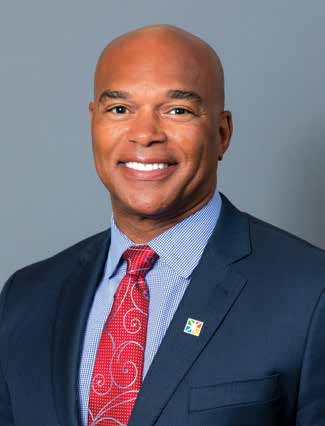Health Care Network Welcomes New Leader
 Healthcare Network, with 11 locations throughout Collier County, today wears many hats since starting in 1977.
Healthcare Network, with 11 locations throughout Collier County, today wears many hats since starting in 1977.
- It is the largest primary care provider for pediatrics.
- It is the largest primary care provider for prenatal care, with over 1,400 deliveries per year.
- It is one of the largest primary care providers.
And, it has a new president and CEO, Jamie Ulmer, who brings a career in military and public health administration, most recently in Aiken, South Carolina.
He answered questions for Life in Naples.

Jamie Ulmer
What are the greatest challenges facing quality health care for low-income communities in Collier County?
For low-income communities within Collier County, access to medical care is a critical issue that has heightened since the pandemic. For over 45 years, Healthcare Network has worked to break down barriers to care and improve health outcomes for individuals from all backgrounds.
Barriers to care that we see include transportation, ability to take time off from work, lack of insurance, cultural/language differences, trust, and low health literacy. These barriers are significant because they keep low-income individuals from seeking the care they need, exacerbating existing medical conditions until the conditions become grave.
How do you recruit and retain quality staff?
A. We utilize traditional and now non-traditional resources such as job boards (on Indeed, Facebook and LinkedIn), local community job fairs and recruiters, as well as existing staff for referrals to help us identify mission-driven individuals. Nontraditionally, we are also growing our own, by investing in our staff and help them get the qualifications needed to perform certain, more specialized roles.
Last year, we launched a program called Healthcare Network Academy to help staff complete the education, training and requirements needed to become certified Medical Assistants and Pharmacy Technicians. At the end of the program, enrolled students have a job ready for them at a Healthcare Networkpractice.
How do you meet the challenge of informing the public about Healthcare Network?
In addition to creating content for traditional and social media channels, we collaborate with numerous organizations, local and state governments, as well as social welfare, health and business organizations to reach families in need and improve health outcomes.
Furthermore, we deployed a Community Outreach team that literally goes out into high-risk communities (sometimes door-to door) such as Immokalee, Golden Gate and Everglades City to reach individuals in need and to build trust in health care.
This team provides screenings (blood pressure, glucose tests, etc.) and helps connect individuals with a medical or dental center. To reach farm workers and Spanish-speaking community members, a Community Health Worker from our Outreach Team hosts a weekly radio segment on Radio Conciencia 107.7 FM — radio station from the Coalition of Immokalee Workers, dedicated to keeping farmworkers informed and educated — about important health topics.

Jamie Ulmer, right, interviewed by Bob Orr,
retired CBS newsman, at Press Club of
Southwest Florida. Courtesy Julie Pedretti.
How important is philanthropy to your mission?
As a health center committed to caring for everyone in our community, regardless of income or insurance status, funding is always a challenge. We are supported by a combination of patient reimbursements, federal funding, grants and public and private philanthropic support.
In 2021 we provided $12-plus million in uncompensated care. As our community grows, the need for our services will increase which will in turn increase our need for community and philanthropic support.
Is there any state or federal legislation on the horizon that may affect the network’s work?
Yes. The 340B Drug Pricing Program is an essential source of support for Community Health Centers, like Healthcare Network. The 340B program allows us to stretch increasingly scarce federal resources and reinvest in patient care. The program lets health centers purchase outpatient drugs at significantly reduced costs. Health Centers then pass the savings on to their patients through reduced drug prices and invest additional savings to expand access and improve health outcomes.
Nearly 34 percent of our patients are uninsured and rely on 340B discounted drugs to treat chronic conditions including HIV, diabetes, respiratory disease and hypertension.
Despite the critical role of the 340B program in sustaining the nation’s safety net, pharmaceutical manufacturers have continuously attacked the program. Since 2020, 18 pharmaceutical manufacturers have restricted or eliminated access to 340B priced drugs through contract pharmacy partners, with eight manufacturers specifically targeting contract pharmacies at Federally Qualified Health Centers, such as Healthcare Network. They are commonly known as Community Health Centers, which are community-based and patient-directed – 51 percent of their boards are patients. FQHCs are safety net providers that primarily provide services typically furnished in an outpatient clinic. This reduced pharmacy access is harmful to the patient populations that Health Centers primarily serve as an essential resource for vulnerable patients.




Leave a Reply
Want to join the discussion?Feel free to contribute!